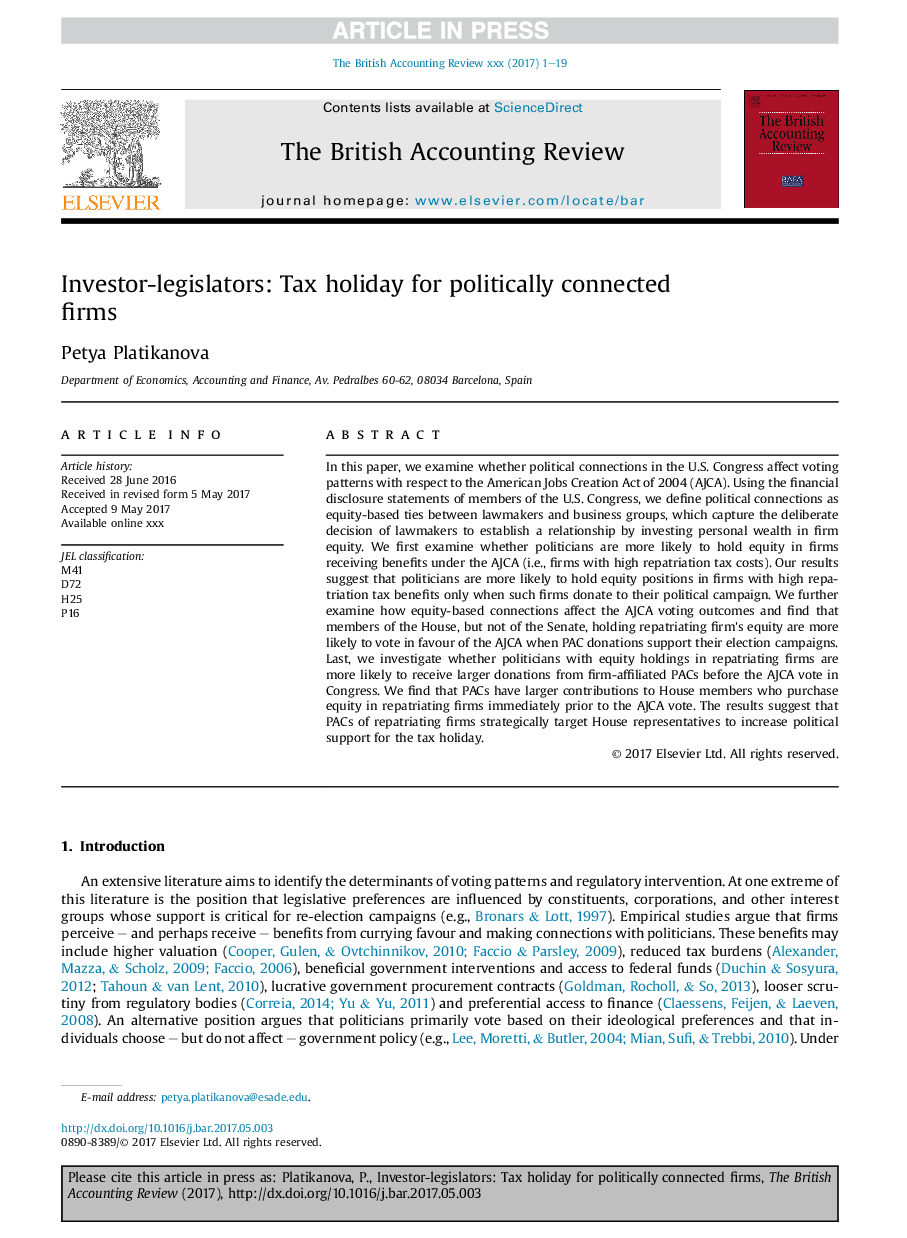| Article ID | Journal | Published Year | Pages | File Type |
|---|---|---|---|---|
| 5107528 | The British Accounting Review | 2017 | 19 Pages |
Abstract
In this paper, we examine whether political connections in the U.S. Congress affect voting patterns with respect to the American Jobs Creation Act of 2004 (AJCA). Using the financial disclosure statements of members of the U.S. Congress, we define political connections as equity-based ties between lawmakers and business groups, which capture the deliberate decision of lawmakers to establish a relationship by investing personal wealth in firm equity. We first examine whether politicians are more likely to hold equity in firms receiving benefits under the AJCA (i.e., firms with high repatriation tax costs). Our results suggest that politicians are more likely to hold equity positions in firms with high repatriation tax benefits only when such firms donate to their political campaign. We further examine how equity-based connections affect the AJCA voting outcomes and find that members of the House, but not of the Senate, holding repatriating firm's equity are more likely to vote in favour of the AJCA when PAC donations support their election campaigns. Last, we investigate whether politicians with equity holdings in repatriating firms are more likely to receive larger donations from firm-affiliated PACs before the AJCA vote in Congress. We find that PACs have larger contributions to House members who purchase equity in repatriating firms immediately prior to the AJCA vote. The results suggest that PACs of repatriating firms strategically target House representatives to increase political support for the tax holiday.
Related Topics
Social Sciences and Humanities
Business, Management and Accounting
Accounting
Authors
Petya Platikanova,
